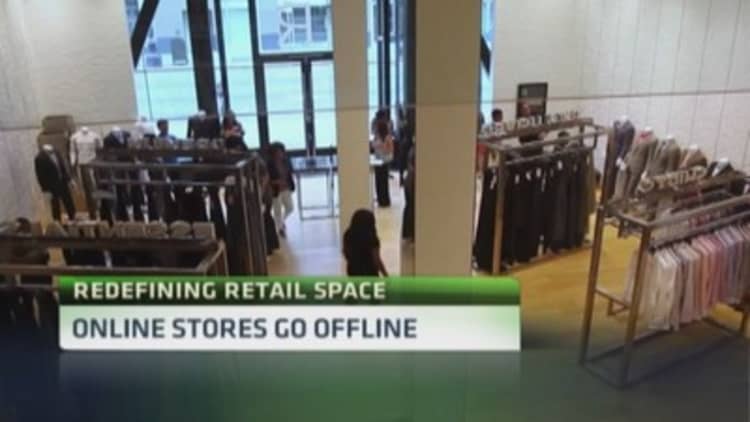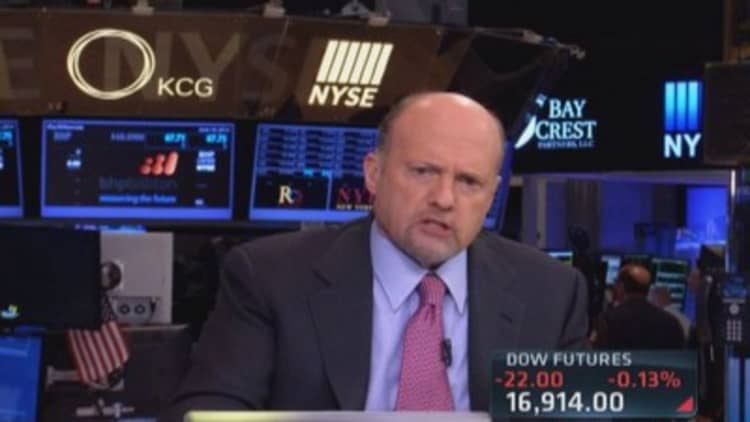
In an increasingly digital world, one start-up is hoping to help online stores go offline.
Storefront is a platform for retail spaces to pair with merchants looking to find and rent short-term space. For anywhere from $50 to $1,000 a day, designers and brands rent spaces like showrooms, boutiques, art galleries and even hotel lobbies or street fair booths.
This year, Storefront said it raised $7.3 million in a Series A round of venture funding. In addition to streamlining the search and payment process between the two parties, Storefront says that it offers insurance coverage up to $5 million.
Read More
Boston-based start-up Ministry of Supply uses Storefront to host several pop-up stores across the country. The company was founded by MIT grads who use technology and engineering to create clothes that adapt to body temperatures.
"No matter how much we try to tell the story of what this fabric looks like ... video, pictures, words can't do it justice until you actually see it in person, and that's when it truly clicks. People say 'Oh, I get it,'" said Aman Advani, co-founder of Ministry of Supply.
Read MoreThe Airbnb meets Uber and Aereo of Wi-Fi
Advani recently rented 28on27, a retail space in Manhattan owned by photographer and entrepreneur Laura Little. The space doubles as a photography studio, so its founder can continue her own projects while supplementing her lease with clients such as Ministry of Supply.

Storefront faces challenges if it wants to become as big as Airbnb, the service that links would-be renters with physical vacation properties. One key difference is Storefront is business-facing, as opposed to Airbnb's consumer-facing model, ultimately making it harder to scale.
Read MoreRent your home—or your couch
Another factor to consider is the fact that renting physical space has traditionally not been as easy as clicking "rent" and showing up, the way consumers typically rent a room. Little said nearly all of her clients visit to see her space before agreeing to rent.
"There's still a process (with) a client seeing the space to make sure it's going to be a fit for what they really want," she said.
—By CNBC's Uptin Saiidi


